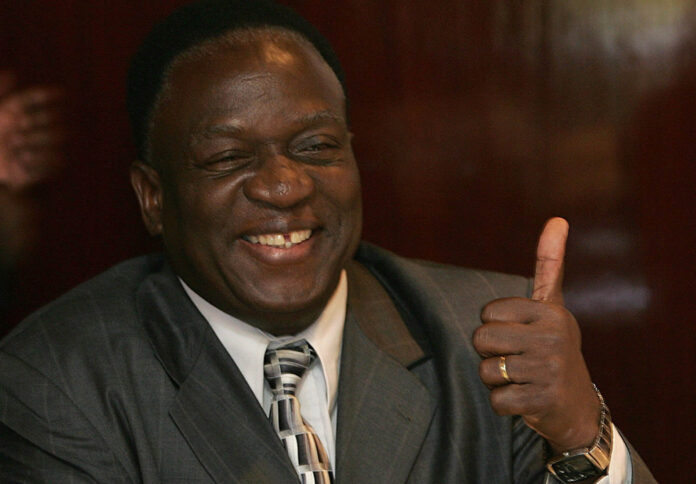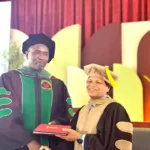Harare – The air in Zimbabwe is thick with whispers of a fresh plot by the ruling ZANU-PF party to extend President Emmerson Mnangagwa’s term beyond 2028, despite his repeated pronouncements that he will respect the country’s constitution and step down, The Africa Report has reported.
This latest move, coming after an initial attempt to amend the constitution was thwarted by Mnangagwa’s own insistence on stepping down, has sparked concern among opposition figures and constitutional experts alike.
While Mnangagwa, speaking to journalists in China this week, reiterated his commitment to a two-term limit, saying “This question of the third term does not arise, especially under my watch,” ZANU-PF’s actions paint a different picture. The party is actively mobilizing its grassroots structures to support a motion for an extension of Mnangagwa’s presidential term at its December national conference.
This push for a third term, despite the president’s public pronouncements, has led many to question his sincerity, especially given his stated commitment to Agenda 2030.
“The problem with ZANU-PF is that they do not choose leaders on merit. It has more to do with who has the most power and can outmanoeuvre rivals,” says political analyst Tendai Ruben Mbofana.
The plot thickens as ZANU-PF members from various provinces are singing the chorus that Mnangagwa must continue as president beyond 2030. On 25 August, ZANU-PF Harare metropolitan provincial chairperson Goodwills Masimirembwa, a lawyer by profession, announced that the party is “united in that President Mnangagwa should continue to lead the country beyond 2028, and the critical issue which comes is that the constitution of Zimbabwe must be amended to enable him to continue beyond 2028”.
Constitutional expert Greg Linington highlights the legal hurdles ZANU-PF faces in its bid to extend Mnangagwa’s term. “Zimbabwe’s constitution in section 328 (7) also stipulates that even if the term limit provisions are extended, this does not apply to a person holding that office any time before the amendment,” Linington explains.
This plot to amend the constitution has already triggered factionalism within ZANU-PF, with some war veterans opposing the idea.
Opposition MDC-T leader Douglas Mwonzora, a constitutional lawyer who helped craft Zimbabwe’s 2013 charter, sees the proposed amendments as a direct affront to democracy and good governance.
“Amending the constitution will cement the international perception of Zimbabwe as a pariah state,” Mwonzora warns.
“It could generate strife within the ruling party itself. Once such amendments are allowed, they will trigger a serious degeneration of the constitutional order.”
Mwonzora also highlights the complex procedure required to amend the constitution, requiring two separate referendums.
“The first one is a referendum to increase presidential term limits and a second referendum to which the electorate has to vote specifically for the sitting president to benefit from the extension of the term. When we crafted the 2013 constitution, we deliberately made the extension of a presidential term legally difficult to achieve,” he explains.
In 2013 when a new constitution was being crafted, 52% of Zimbabweans voted no for the first draft because it did not include their views. Analysts say the ZANU-PF plot could also be resisted.
“It must be remembered that Mnangagwa was not voted for by the majority of Zimbabweans. Therefore, extending his term of office constitutes a serious imposition. At 81, Mnangagwa needs to retire, sit down and write his memoirs rights group Crisis in Zimbabwe Coalition (CiZC) echoes these concerns, warning that extending Mnangagwa’s term will plunge Zimbabwe into political instability,” says CiZC chairperson Peter Mutasa.
“Within ZANU-PF, those at the forefront will not give Mnangagwa a chance to continue at the helm. Many investors will leave and the economy will take further knocks if there is political instability due to lack of rule of law. Zimbabweans must not entertain such a dangerous political idea,” Peter Mutasa added.
The National Constitutional Assembly (NCA), a political party that promotes constitutionalism, questions ZANU-PF’s rationale for amending the constitution while Mnangagwa still has four years to complete his second term.
“We have now arrived at a time which exposes that the constitution is weak and can be changed by any leader against the will of the people,” says NCA spokesperson Madock Chivasa.
“The main problem in Zimbabwe is having leaders that overstay. There is no justification for Mnangagwa to stay, he must leave the baton to the next leader.”
Mbofana says the military establishment has always played a major role in Zimbabwe’s succession politics. He points to Mugabe’s assumption of power by ousting Ndabaningi Sithole through the 1975 Mgagao Declaration, which was authored by ZANLA forces in Tanzania.
“Mugabe was then toppled by Mnangagwa via a military coup in 2017 after [Mnangagwa] was fired as ZANU-PF and Zimbabwe’s vice president a week before the coup,” Mbofana adds.
“[Mnangagwa] appears to have learnt nothing from the Mugabe era. He was one of the faction leaders plotting the coup against Mugabe. For some strange reason, Mnangagwa appears not to see that this is history repeating itself as his refusal to step down will only further divide ZANU-PF and create instability in government.”
“If anything, the so-called ‘opposition’ in parliament led by Citizens Coalition for Change (CCC) imposter Sengezo Tshabangu will likely vote with ZANU-PF to amend the constitution for Mnangagwa to achieve his ambitions.”

Follow @MyZimbabweNews












